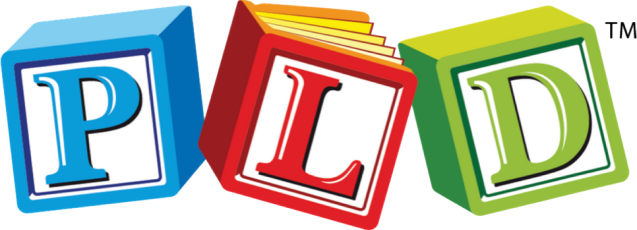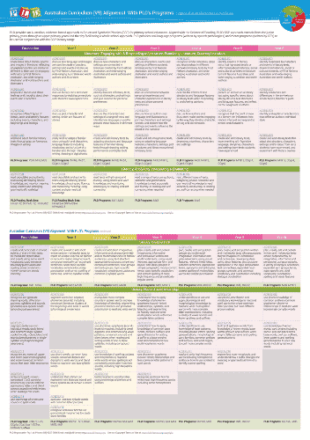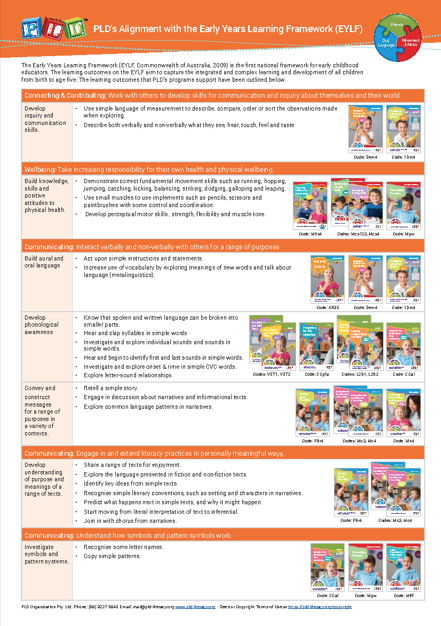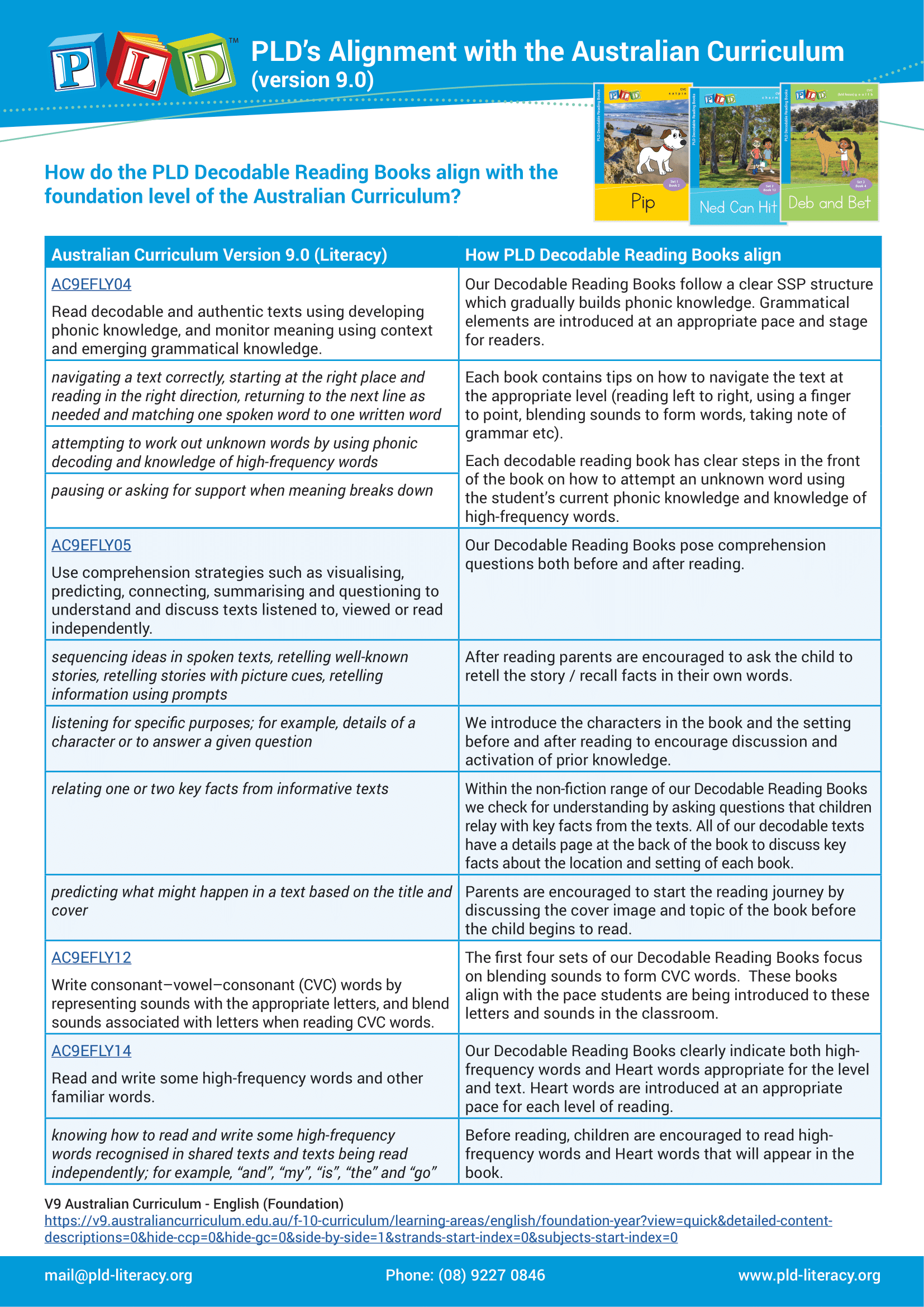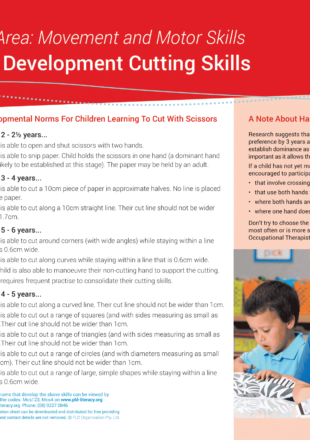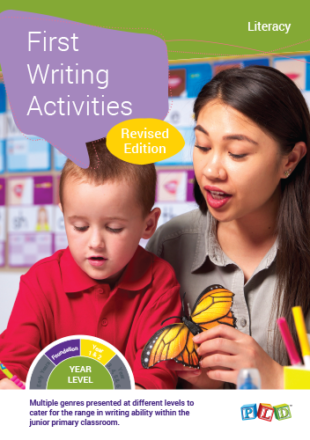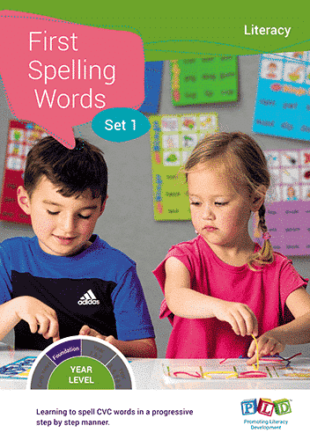-
PLD’s Alignment to the Australian National Curriculum
How does PLD align to the Australian National Curriculum?
In the attached download we have outlined where PLD applies to each year level, the content code and descriptor and the related PLD programs.
-
PLD’s Alignment with the Early Years Learning Framework
-
PLD's Decodable Reading Books Alignment with the Australian Curriculum
Pre-writing patterns – write on posters
$29.95 (inc. $2.72 GST)
In stock
Pre-writing patterns form the basis of all alphabet letters and prepare children for letter formation. These double sided wipe on wipe off A3 reusable posters can be used with white board markers as a wall poster, on an easel or table.
Pre-writing patterns form the basis of all alphabet letters and prepare children for letter formation. These double sided wipe on wipe off A3 reusable posters can be used with white board markers as a wall poster, on an easel or table.
- Pre-writing patterns form the basis of all alphabet letters and prepare children for letter formation
- 12 double-sided A3 laminated posters
- Posters have been designed to write on with white board markers and then to wipe-clean
- Designed for use on an easel or a table
Books: PLD’s books may only be used by the Authorised Purchaser, and the Authorised Purchaser’s students, and only in conjunction with classes taken by the Authorised Purchaser. PLD’s books may be photocopied up to 10% per year for use only by the Authorised Purchaser. The Authorised Purchaser is defined as the original purchaser of the PLD materials.
eBooks: PLD’s eBooks may only be used by the Authorised Purchaser, and the Authorised Purchaser’s students, and only in conjunction with classes taken by the Authorised Purchaser. The Authorised Purchaser is defined as the original purchaser of the PLD eBook. Under the ‘Statutory Educational Licence’ the authorised purchaser can:
- View the eBook as a whole or in part
- Copy the eBook to their personal drive or locally on their device
- Display the eBook on your Interactive Whiteboard, projector or smart TV, for the purpose of teaching the students in their own classroom
- Photocopy or print up to 10% of the eBook per year, for use with the students in their classroom(s).
For copyright purposes, every page of the PLD eBooks will be stamped with the name & email address provided by the purchaser at the time of order. PLD ebooks belong solely to the purchaser and may not be shared with colleagues, parents or anyone else. PLD eBooks must not be uploaded to school servers, intranets or online platforms. Schools wishing to licence PLD eBooks can contact us HERE.
School Licences: A School Licence is a multi-user subscription to a PLD resource, such as a book or program, in a digital and printable format that is accessible via the ‘My Subscription’ section of the PLD website. A School Licence is valid for 12 months from the date of purchase and can be used by an unlimited number of teachers within a school. When bought under a School Licence:
- Resources are accessible in digital, flipbook format, which teachers can access from anywhere, at any time, on any device via the PLD website.
- The resources can be used by any amount of teachers in that school.
- Multiple teachers can access the resources simultaneously.
- The resource is available to print, subject to the standard 10% per year limitation as per Australian Copyright law.
- Updated versions of resources will be automatically accessible to users with a current licence for free, ensuring all users have access to the latest versions of resources.
- Resources are stored centrally and accessed via a secure login account on the PLD website. Thus, all currently subscription resources are accessible in the one convenient place, making resources extremely easy to find. Moreso, the school licence offering eradicates the frustration of lost or misplaced resources and programs which happens often with hardback books.
Additional information can be accessed via the following links:
Books: https://support.pld-literacy.org/en-au/article/plds-printed-electronic-materials-how-can-they-be-used-can-i-share-them-with-a-friendcolleague-9lk4y/
eBooks: https://support.pld-literacy.org/en-au/article/the-pld-ebooks-how-can-they-be-used-what-is-the-copyright-policy-ptfya8/
PLD’s Copyright Policy: https://support.pld-literacy.org/en-au/article/copyright-and-terms-of-use-of-pld-literacy-15tkcer/

